RESOURCES
Hacking and Cyber Warfare Go Hand in Hand

Since December 2022, Sweden has experienced several politically motivated cyber-attacks. Anonymous, a well-known hacker group, took down the main government website as a protest against the extradition of a Kurdish politician to Turkey (1). In February 2023, a pro-Russian cybercriminal gang called Anonymous Sudan (2) orchestrated a series of Distributed Denial of Service (DDoS) attacks on Scandinavian Airlines, Swedish Railways, Swedish Post, and Telecom Authority. In the case of Scandinavian Airlines, some customer data has been leaked. It seems that wave of attacks is still underway.
Sweden has been under the geopolitical spotlight since the beginning of the war in Ukraine. Its membership application to NATO triggered a spiral of events involving Russia, Turkey, and political figures from far right and extreme Islamist groups. Anonymous Sudan, in collaboration with different nation-state actors, has been mobilising cyber-attacks to disrupt the operations of key institutions in Sweden in response to these geopolitical developments.
HACKTIVISM AND NATION-STATE BACKED ATTACK CAMPAIGNS
Political hacktivism is not new, and it is mostly orchestrated by groups with specific political agendas, in their own accounts, such as defending freedom of speech, supporting political asylum cases, or raising awareness of environmental concerns. Nation-state backed campaigns are far more dangerous and aim to take down critical infrastructures such as electricity, gas, and healthcare networks in the targeted countries. Threat actors “offer” their services to facilitate and run these potentially very dangerous cyber attacks on behalf of others.
CYBERCRIME IS A BIG BUSINESS
The size of the cybercrime underworld is estimated at over 1 trillion USD, nearly ten times larger than the cybersecurity market overall. Over the years security researchers revealed extremely complicated and skilful threat actors that offer tools, infrastructure, information and services to groups and nations. Lazarus Group, REvil, Sandworm, Carbanak, UAC-0056 are a few of the many active threat actors that were behind high-profile attacks. These actors execute DDOS attacks, develop highly sophisticated malicious codes and exploit kits and make their infrastructure available for the use of others in exchange for money. Every piece of information (hacked personally identifiable information, compromised email accounts, etc), infrastructure (i.e. masked servers), tools (malware, ransomware etc) and services (i.e DDOS) have a price defined in the “free market” of the criminal underworld. For example, a DDoS attack service is currently marketed at around 5,000. – USD per day. Not at all expensive for a nation state.
CYBER WARFARE IS HAPPENING TODAY
Cyber warfare is not a futuristic dystopia. It is happening today with an increasing intensity. We experience city-wide electric cuts, communication interruptions, disrupted healthcare or travel services. USA, UK and EU have been tightening their legislations. New nationwide cyber security directives are put in effect one after the other. Collaboration among democratic countries is increasing.
Some strategic initiatives countries have been implementing to combat cyber warfare are:
- tightening cyber security regulations for critical infrastructures
- enforcing zero trust/micro segmentation to minimise and contain a possible damage
- increasing awareness for good security practices such as the use of multi factor authentication and strong passwords
- deploying deception technologies
- making cyber security a CEO responsibility
- deploying offensive security practices to take down cybercriminal infrastructures.
References:
(1) https://medyanews.net/hacker-group-anonymous-hacks-swedish-official-website-in-protest-at-extradition-of-kurdish-politician
(2) As it appears, Anonymous and Anonymous Sudan are two separate cyber threat actors.
-
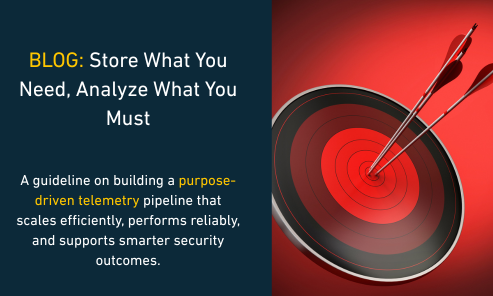
Store What You Need, Analyse What You Must
MoreIn this blog, we explore why modern security operations must rethink their approach to telemetry collection and retention. With cloud-native platforms introducing real-time cost and performance tradeoffs, the legacy “collect everything” mindset is no longer sustainable. Instead, we present a strategy rooted in selective collection and tiered retention, where each log source serves a defined purpose — from detection to enrichment, investigation, or compliance. By aligning storage decisions to actual operational value, organizations can reduce cost, improve detection clarity, and streamline investigations without sacrificing visibility. This blog offers practical guidance on building a purpose-driven telemetry pipeline that scales efficiently, performs reliably, and supports smarter security outcomes.
-

Modern SIEM Efficiency Starts at Ingestion: How Microsoft Sentinel’s Data Collection Rules (DCRs) Shape Detection Value
MoreIn this blog post, we explore the vital role of selective data collection in modern security operations and examine how Microsoft Azure Sentinel addresses this challenge using its powerful Data Collection Rules (DCRs). Whilst the discussion centres on Sentinel-specific examples, the insights presented are highly relevant for any organisation looking to enhance SIEM efficiency. Whether you're a security architect aiming to streamline detection or an MSSP customer focused on reducing data ingestion and operational costs, adopting a signal-driven logging strategy can yield substantial benefits. By being deliberate in what data is collected, organisations can lower overhead, sharpen threat detection, and ensure cost-effective log management.
-

Understanding Group Managed Service Accounts (gMSAs): Advantages Over Traditional Service Accounts
MoreNearly all breaches in the last decade were preventable. While intrusions, defence evasions, and human error can occur, good cybersecurity practices can stop threat actors from progressing along the kill chain before achieving their goals. We've been sharing best practices through Tips & Tricks LinkedIn posts to help our followers build cyber-resilient networks. Our VP of Product, Cumhur Hatipoglu, has written a new blog diving deeper into Group Managed Service Accounts (gMSAs)—one of our recent Tips & Tricks topics. This Microsoft feature provides enhanced protection against attack techniques including credential theft, dumping, lateral movement, and privilege escalation. Your detection and response teams and service providers should focus on handling sophisticated attacks that bypass internal defences—not the preventable ones.
-
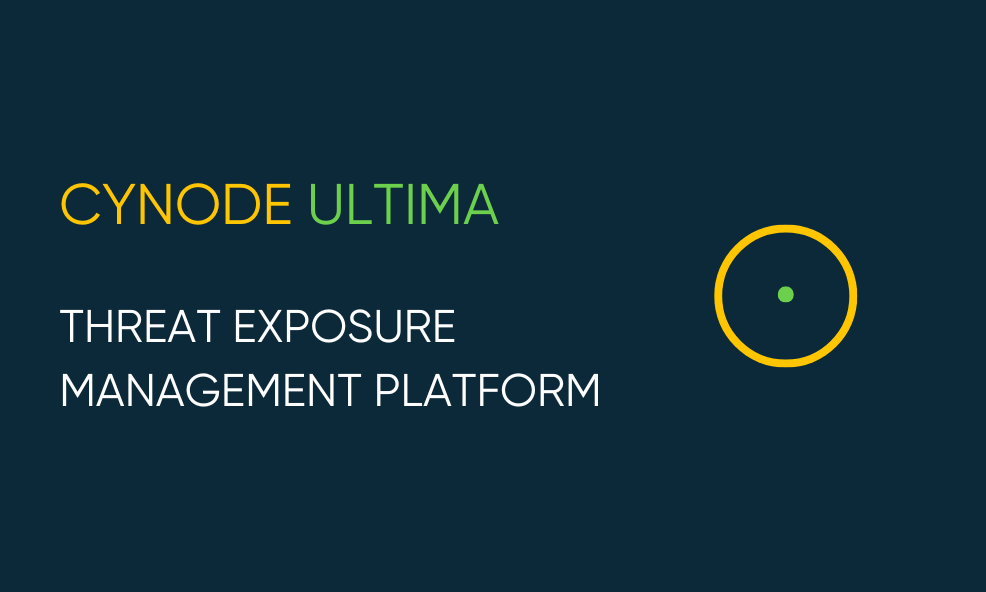
Managing Cyber Risk with CTEM and Beyond
MoreCynode Ultima takes the complexity out of cyber threat management with its all-in-one security platform. Building on Gartner's CTEM framework, we've created a solution that brings together essential security tools - from threat intelligence and vulnerability prioritization to dark web monitoring and attack surface management - in one place. The article explores why organizations often struggle to implement security programs that meaningfully reveal their true risks and security gaps. We show how Ultima bridges this gap by providing an integrated approach that helps businesses understand and address their actual security exposures, making advanced threat management both accessible and actionable.
-

Investing in Dark Web Monitoring: A Practical Guide
MoreShould you invest in a Dark Web Monitoring service? The answer is not as straightforward as you might think—it really depends. Whilst Dark Web Monitoring is undoubtedly valuable, where does it rank in your list of priorities? For instance, if you have a limited budget, should you invest in Dark Web Monitoring or a Security Awareness Programme? The answers to such questions vary for each organisation, but there are some general principles that can guide your decision-making process.
-

The Persistent Threat of Business Email Compromise
MoreBusiness Email Compromise is a sophisticated type of email and identity based attack that doesn't rely on malware or malicious links. Instead, it leverages social engineering tactics to manipulate human trust and judgement. This makes BEC attacks particularly challenging to detect and prevent, even for organisations with robust protection infrastructures and cyber security awareness programmes.
-

The Risks of Increasing SaaS Use
MoreOrganisations increasingly rely on cloud applications, with small enterprises using over 20 SaaS apps per user and large companies exceeding 250 per company. This growth introduces significant cyber security risks, including unauthorised access and Shadow IT, where unsanctioned apps are used without oversight. To mitigate these risks, companies need advanced monitoring solutions like Cynode’s MDR for Cloud Apps Shadow IT, which offers visibility, consent policy enforcement, and threat detection across SaaS platforms, ensuring security and compliance.
-

Interview with Senior Cyber Advisor Per-Olov Kask
MoreDelve into the fascinating career journey of a seasoned cyber security professional who has dedicated over three decades to the ever-evolving IT and cyber security landscape. Starting as an IT technician in 1993, our expert quickly rose through the ranks to become a country IT manager, driven by a passion for combating emerging cyber threats. In 2022, this journey led to an impactful role at Cynode as a Senior Cyber Advisor. Join us as we explore his experiences, insights, and the innovative approaches that make Cynode a leader in the cyber security field.
-
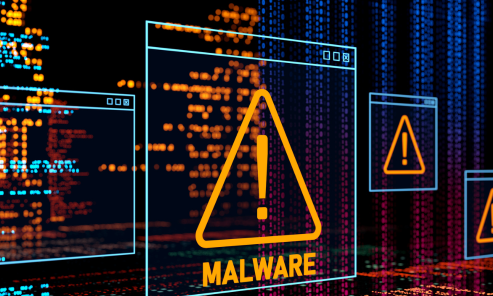
Regular EDR Policy Tuning
MoreThe cyber security world has recently focused on EDR technology due to its significant impact across industries. This post explores the evolution from early antivirus software to EDR platforms. Key milestones include the introduction of commercial antivirus software in 1987, the emergence of heuristic and behavioural detection methods in the early 2000s, and the development of Next-Gen Antivirus (NGAV) in 2010. EDR solutions, emerging around 2013, are crucial for detecting, investigating, and mitigating security threats but require regular policy updates and meticulous tuning for optimal performance.
-

Mastering Log Management: Enhancing SIEM and SOC Efficacy
MoreEfficient log management is critical for SIEM and SOC efficacy. Challenges include log agent malfunctions, configuration errors, and network issues. This blog explores four log problem categories, from detection failures to incomplete logs, and introduces innovative solutions for proactive threat detection and response. Learn how Cynode's integrated threat simulation and log validation processes ensure optimal log coverage and enhanced security monitoring. Stay ahead of cyber threats with robust log management practices.
-

Understanding WebApp Exposure
MoreWebApp Exposure Monitoring involves regular assessments and updates to perimeter defence platforms like WAF policies, ensuring alignment with the latest threat intelligence. Having a proactive stance to WebApp attacks is crucial as cyber threats incredibly fast, often outpacing traditional security defences. The process of continuously monitoring web applications allows organisations to more readily detect anomalies and respond to threats in real-time, minimising the risk of data breaches and other cyber incidents.
-

Introduction to Managed Security Service Providers (MSSPs)
MoreBusinesses increasingly struggle with cyber security management, especially with limited resources. Managed Security Service Providers (MSSPs) like Cynode offer comprehensive, efficient solutions, managing everything from security infrastructure to incident response, often using cloud services for cost efficiency. This article explores the benefits and services MSSPs provide, underscoring their importance in modern cyber security strategies.
-
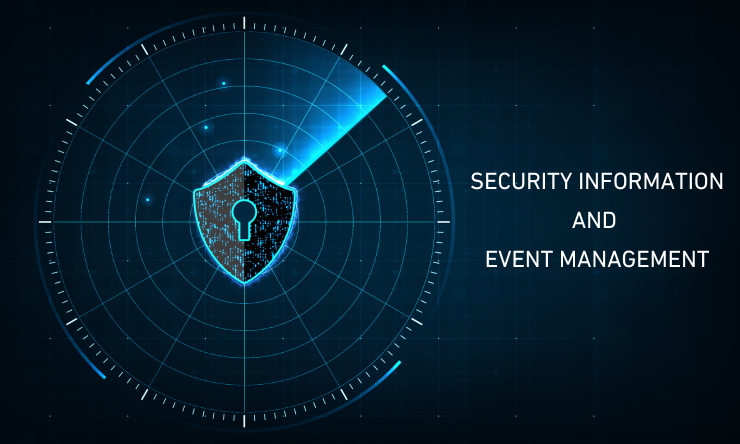
Improving SIEM Efficacy as the Market Evolves
MoreAs the SIEM market evolves with new mergers and partnerships, Cynode supports practitioners to ensure no security event is missed, offering comprehensive services from threat-centric log and rule validation to complete SIEM management.
-

Welcome Konrad Falk as Our New Senior Cyber Advisor & Architect!
MoreKonrad brings extensive experience in Cyber Security and IT, with a background in programming, networking, and security. Passionate about securing companies and educating others, he values the trust of our leadership and is eager to manage security incidents and tackle evolving threats hands-on.
-

“Trust me, I was an engineer” – Björn Nilsson
MoreWe are pleased to announce Björn Nilsson as the new Head of Security Operations Sweden at Cynode. His extensive experience in cyber security and IT infrastructure marks a significant milestone in enhancing our capabilities. Björn brings a wealth of expertise from various critical roles within the industry.
-
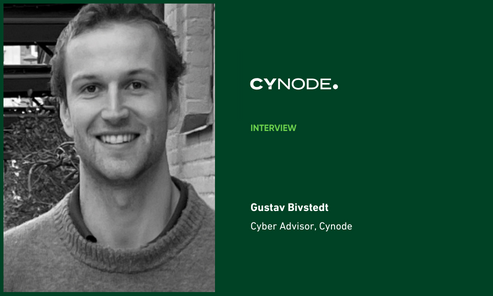
Cynode Boosts Team with Gustav Bivstedt's Technical Expertise
MoreCynode hires Gustav Bivstedt as a Cyber Advisor to enhance our Cyber Advisory and Assurance Services. His expertise strengthens our technical capacity and supports business growth, including new offerings in security testing, cyber maturity assessments, and proactive risk management with Cyber Threat Intelligence.
-
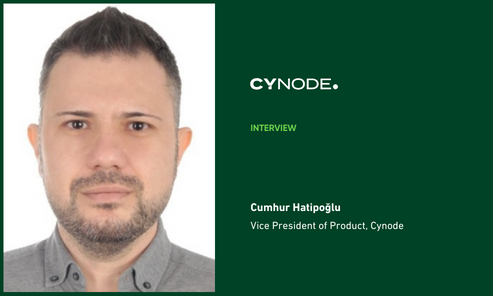
Meet our "VP of Product" Cumhur Hatipoglu
MoreAs Cynode’s CMO, I am constantly impressed by our team's innovation and engagement. Cumhur Hatipoglu, our new VP of Product, enhances our mission to innovate in cyber security and MDR services. His approach integrates NIST CSF and best security practices to ensure our solutions meet clients' evolving needs.
-

EU updates NIS Directive. Are you compliant?
MoreThe European Union introduced the NIS 2 Directive to improve the cyber security of critical infrastructure systems within its member states and to ensure that digital service providers and operators of essential services have adequate security measures in place to secure their networks and data.
-
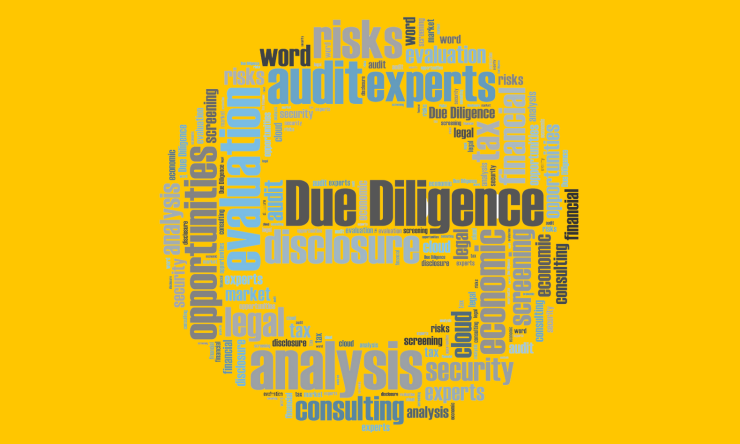
Rise of Cyber Due Diligence in M&A Processes
MoreSweden's post-pandemic economic recovery has spurred M&As. Cynode emphasises integrating cyber due diligence to address vulnerabilities, protect essential information, and optimise security spending, enhancing the security posture before, during and after M&As.